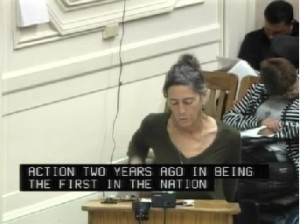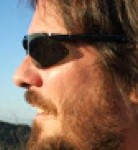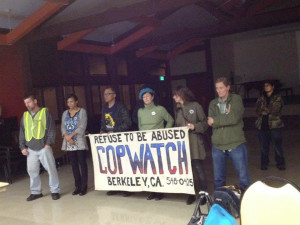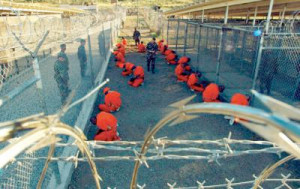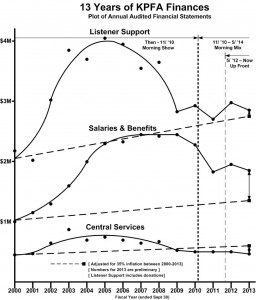By: Virginia Browning
Note: fellow candidate Sharon Adams has asked candidates to write something short to give voters a better idea who we are. I think this is a great idea, but must say “I would have made it shorter, but I didn’t have time.” She brilliantly turned my less-whittled draft into this article. I’ll try to improve this when I have time, but here are some elements from my life and experience, mostly concentrating on political parts (some but not all of these, and versus for example my struggling against my “by ear” tendency to learn music theory – over and over and over….”)
As a teenager, I participated in anti-war marches and groups and actively campaigned for Democratic Party politicians. Later I attended caucus meetings to elect delegates the year Fred Harris ran for president. It was fairly easy to support someone to the left of the lesser evil in those days, because the Republicans were sure to win the state of Utah anyway. Why not vote your conscience? In environmental groups such as The Utah Wilderness Association I worked hard against the building of several massive power plants, and against destruction of much public land in Utah, often successfully. When community radio KRCL, a welcome burst of beauty blooming in Salt Lake City was launched, I got the required license, learned to use the board, mics, and other equipment, and did field and studio recordings, news editing, interviewing, and other broadcasting. I produced a weekly environmental show for a time with interviews and segments from hearings I had recorded.
I joined a few activists and became Volunteer Coordinator in The MX Information Center in opposing the basing of nuclear MX missiles in Utah and Nevada. This became a very successful organization. I met with Downwinders in that group, former conservative Utahns, many of them, who, having been basically bombed and maimed, or as survivors of family members murdered by the U.S. government in the above-ground and underground but leaking nuclear explosions drifting across the state (and country and world), were not quite as willing to allow these nuclear missiles into their midst as the government had counted on their being. I realized that the mountains around Salt Lake City had retained some of the highest levels of pollution from these tests. Members of my own family became ill or died, possibly from exposure they received as children to these high levels of radiation. But the line “we are all downwinders” in this corporate plutocracy organized for profit at the expense of health, is a line I find to be important and true.
 I met Utah Phillips when I was 15 and immediately fell madly in love with him. He taught me something of the value of a trusted adult not taking advantage of such a crush, but was always so wonderful with young people in my presence. All his life he was very important to me.
I met Utah Phillips when I was 15 and immediately fell madly in love with him. He taught me something of the value of a trusted adult not taking advantage of such a crush, but was always so wonderful with young people in my presence. All his life he was very important to me.
After Fred Harris lost, I quit working for the Democrats but worked for Barry Commoner and whoever came after that, always exercising my right to vote (why not? don’t NOT vote – vote for SOMEONE. In this I disagreed with dear eloquent enchanting Utah Phillips…)
I joined Marxist study groups; I saw up close the discipline of members of leftist parties who joined trade unions in order to have conversations and move things to the left. Unfortunately, too often the Democratic Party ended up moving each of these to the right instead. And some of those dedicated members were treated badly when they failed to go along with every single precept or notion. I saw dedicated activists treated very hurtfully, some who had traveled across the country, changed their lives to create change. I saw that actual democracy is not easy, and that the temptation to grab power is ever-present in all organizations. Difficult as it is though, it is important to persist and try to achieve understanding.
When I moved to Berkeley/Oakland/Berkeley, I became aware of KPFA. I had adored working at radio (and listening to it), and considered applying for a job as there were some openings listed shortly after I moved. But I needed the security of a steady paycheck, and I thought – how can a community station guarantee living wages and benefits for so many paid radio people? KPFA always seemed to be struggling. I had not had the most stable upbringing and needed a sense of stability. Furthermore, I had seen how much good came from volunteer reporters and broadcasters at the radio station in Salt Lake City. The picture of becoming a paid employee requiring a steady paycheck and benefits year after year didn’t fit with my notion of a community radio station free to report on even unpopular subjects. Who would pay if the subject was not quite sexy yet? I had seen how many years it took, for example, for the MX Information Center to grow from a group of 6 or 8 to a mailing list of several thousand. And then it had only one paid employee, and I knew that sustaining more than that would have been very hard.
In Oakland and Berkeley, I have worked on various projects, including as past co-chair and member of STAND — Standing Together for Accountable Neighborhood Development — an alliance of community groups, residents and merchants that formed in response to the surge of high-density condo development proposals for Temescal, Rockridge, and other North Oakland neighborhoods.
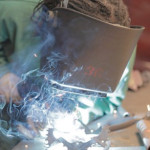
A student welds a bike path sculpture in a STAND affiliated project.
While STAND supports new development and recognizes the benefits of sustainable, equitable, and responsible growth, its mission is to provide a voice for the thousands of citizens alarmed by the number, size, density, and impacts of these projects and to hold the City of Oakland accountable in identifying the full range of project impacts. With that group I worked painstakingly reviewing zoning proposed for the city and helping to develop a set of recommendations.
A KPFA-related note here: as with the local Berkeley groups currently working on concerns similar to STAND’s, (and as with honest reports about Africa or Syria for that matter not framed by corporate newswires), the KPFA news reported little to nothing about the many community meetings STAND and other groups held, despite their almost always being of great interest to community members. They were usually well-attended, but through no help from the KPFA news department, access to which remains opaque to most listeners still. UCR, United for Community Radio, is working to improve this type of coverage.
There was a wonderful flowering of hope at the beginning of the Ron Dellums mayorship in Oakland during which hundreds of dedicated citizens participated in task forces on housing, transportation, economics, etc. etc. Creative solutions were developed and presented, and some even used. I was on several of those task forces.
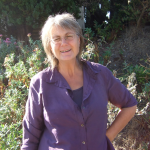
Virginia Browning
In recent years most of my activism has centered around KPFA radio. In the 90s many listeners became alarmed at what seemed to be a winnowing out of radical voices, and a kind of “progressive” but not too progressive aura. There has continuously been tension between those who literally have no wide-signal megaphone such as KPFA available anywhere else, including many homeless and poor folks, and those who want to sort of titrate in a few radical views at a time but basically appeal to comfortable ex-leftists who now support the rather significant paid staff financially. You can read more about the so-called “Healthy Stations Project” which I and many others credit with having helped to kill much of the radical nature in stations across the country.
I’ll try to write more about this period when I have more time.
In October 2011, my heart was lifted by the activism of Occupy Wall Street and Occupy Oakland. I joined with others in general assemblies and events, and haven’t given up on the idea that an even better version of this can re-emerge. Some of the conversations encouraged in the “G.A.’s” (general assemblies) were very wonderful, very touching. Activists I met then have continued to open public conversations and to work for a better world, including in Oakland’s versions of “Black Lives Matter”.
Before my own candidacy for the KPFA board, I worked hard for fair elections at KPFA (there actually have not been any fair enough yet) and to help set up forums for listeners to know who they would be voting for in the KPFA elections.
While of course I strongly urge you to vote for UCR (United for Community Radio) members only, I feel now that no election alone will likely protect Pacifica. The current situation is so life-threatening to the whole topple-ready network that some from historically opposed factions at KPFA, while retaining importantly different visions, have joined a project to keep parts of the network from being swallowed by the six owners of 90% of U.S. media. I and some from diverse factions network-wide have begun to explore new bylaws and new culture.
There’s more to say, and no time now to say it. But for now I’ll say this: Beware of this platitude that does NOT apply: “the museum of ancient hurts,” which I have heard used by our opposition in this election. It is a distraction from learning from history. * As Utah Phillips said – history is still here, it didn’t go anywhere. People often need to process betrayals and damage before moving on. We must start with being honest about who we are historically and what we have stood for, and try to show respect for each other’s history and values, express clear agreements and disagreements which can only become clear when we are open about how we do disagree. Then we may begin to learn how to work together in ways necessary to Pacifica’s survival.
*The very name of our opposition in this election is a name I and many others of us used together in the 90s. Now this narrow group has grabbed a good name and confuses listeners into thinking the banner they post on their website is their banner and stands for their values. In fact, many in the original group who carried that banner have and had values diametrically opposite theirs. When someone recommends against learning history, raise a little red flag or two…and do your best to learn some. It may be important.
Thanks for reading this. I know it’s hard to know who to vote for. All you can do is do your best. Pacifica is still a treasure.


